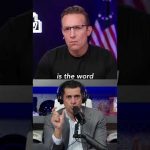In a significant legal battle unfolding in Connecticut, challenges to federal restrictions on handgun purchases for adults under 21 years of age have garnered attention. The case, Sakao v. Bondi, spearheaded by two young plaintiffs, Zachary Sakao and Samuel Town, is questioning the constitutionality of laws that prohibit individuals aged 18 to 20 from buying handguns from licensed dealers. The plaintiffs argue that these laws infringe upon their Second Amendment rights, an assertion that could resonate widely among young Americans who believe in their right to self-defense and firearm ownership.
The Department of Justice, under Attorney General Pam Bondi, is defending these age-based restrictions, claiming historical justification for the federal handgun purchase ban. The government argues that the founding fathers viewed those under 21 as lacking the maturity necessary for significant responsibilities, such as purchasing firearms. This rationale invokes historical precedents, citing the opinions of figures like John Adams and Blackstone to suggest that the framers of the Constitution intended for such limitations. This argument raises eyebrows among supporters of the Second Amendment, who contend that the same principles laid out by the founding fathers promote individual rights and self-governance.
A crucial element of the plaintiffs’ argument is rooted in recent Supreme Court decisions which favor broader interpretations of the Second Amendment. The plaintiffs assert that under the Bruin test, which evaluates historical context in interpreting gun rights, they should be allowed to purchase handguns. They claim that the federal ban on handgun purchases supports a discriminatory practice against young adults who are otherwise considered capable of handling numerous adult responsibilities, such as voting and serving in the military.
Notably, this legal disagreement reflects a larger national conversation about the rights of young Americans and the interpretations of the Second Amendment. The case highlights a divide among various federal circuit courts regarding the constitutionality of restricting gun rights for individuals under 21. As discussions progress, it appears likely that this case may ultimately reach the Supreme Court, promising to draw greater attention to the Constitution’s protection of gun rights for all American citizens, regardless of age.
If the Supreme Court decides in favor of the plaintiffs, it could lead to a landmark moment for Second Amendment rights, infinitely expanding access to handguns for those aged 18 to 20. However, should the Court uphold the current bans, it may set a dangerous precedent, allowing governments to impose further restrictions on the rights of young adults while ignoring their status as full citizens. The ramifications of this case could shape the future of gun ownership in America, especially among younger generations eager to defend their rights.
For now, the Sakao v. Bondi case serves as a crucial reminder of the ongoing struggle to maintain and expand Second Amendment rights. As young Americans push back against restrictions that they believe limiting their fundamental rights, it may catalyze a more extensive movement for change, ensuring that the core ideals of liberty, self-defense, and personal responsibility remain firmly entrenched in American culture and law. The outcome of this case will likely resonate beyond the courtroom, shining a spotlight on the broader implications of age-based restrictions and their place in the context of individual rights in America.




